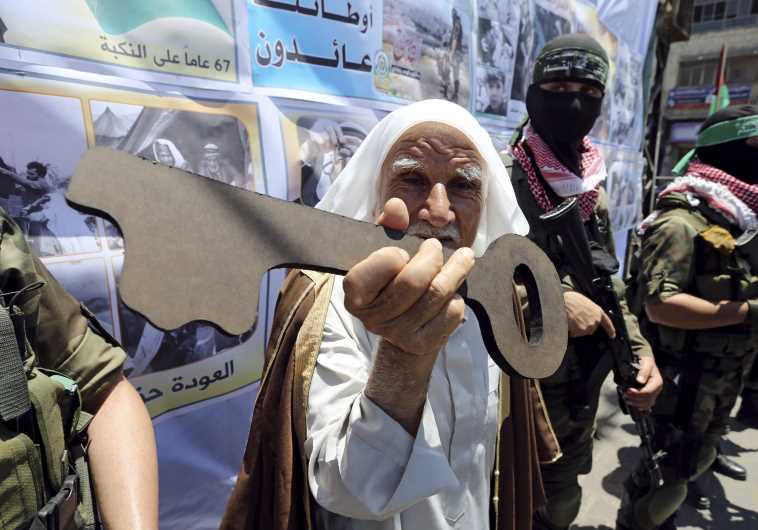Encountering Peace: Memories and the future
For now, it seems we are in a kind of holding pattern. But it is also clear that if we don’t move forward, we move backward.
 A Palestinian man holds a symbolic key next to Hamas militants during a rally after Nakba Day in Rafah
A Palestinian man holds a symbolic key next to Hamas militants during a rally after Nakba Day in Rafah